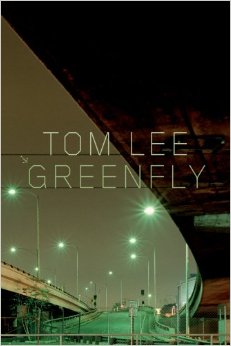(First published in The London Magazine, May 2003)
My first printed story, ‘Simon Carver Looks at Life’, a dark tale about a prep school boy and cricket, appeared in the October / November 1996 issue of The London Magazine. This should have been a happy start to my belated writing career except that I had lied to Alan Ross about myself. It was a fertile lie, which forced me to reappraise myself radically, during a time of mental exhaustion.
Alan Ross, who throughout his life also suffered from crippling bouts of depression, had phoned me, sometime in August 1996, to get biographical details. He was renowned for being curt on the phone, and I found him intimidating and slightly grand in his manner. Initially I was straightforward with him, although he asked a number of probing questions – he had been in Naval Intelligence. Then he asked me which school I had been to, and I tried to sidestep the question by saying that I had been to Haileybury prep school, and briefly to public school. Then I talked quickly about my time at a tutorial college in Windsor, the Polytechnic of North London, Birkbeck College and Cambridge University.
‘Yes, but which school did you go to?’
‘Haileybury,’ I blurted out, ‘but I was only there for a year or so.’
‘Which house were you in.’
‘Edmonstone.’
The interrogation over, he said my story would appear soon, and we said a clipped goodbye.
In fact I had run away three times in my first term at Haileybury in 1968 and never went back. I returned instead to my alcoholic parents in Egham, Surrey, my mother vivacious and violent, my father benign and in the early stages of dementia.
After my first two weeks at Haileybury, I had no intention of staying. I don’t believe it was anything to do with the school. The previous school holiday had determined my fate. My father was failing in mind and body, my mother was often drunk and also involved in a messy relationship with my father’s chauffeur. Her mood swings, from most loving mother to Lady Dracula, were terrifying. But I was sure that if I were at home I could help my mother and make everything better.
Perhaps my initial half-truth to Alan Ross was understandable, as I did not wish to dig up these things. I just hoped that he wouldn’t use the Haileybury detail in the contributors’ notes, but he did – perhaps because, ironically, he was himself an Old Haileyburian. After this I met him briefly on two occasions at his funny little hut of an office in Thurloe Place SW7, but I never mentioned my lie. I brooded on it, and in the spring of 1998 I wrote him a letter revealing the truth. He probably knew anyway as he had many connections with the Old Boy network.
But that lie showed to me the need I had to cling to some fictionalized idea of myself, and how I still erased the painful, or what I interpreted as most shameful, parts of my life.
My father died in 1970. My mother went on a world cruise and I stayed in Egham. Mrs Dent came in to cook my meals and to keep the house clean. I had my first intense sexual relationship, with the gorgeous Virginia, which cheered me up no end.
From this point on my life was a series of vignettes, lacking connection and purpose: dropping out in Wales; a philosophy degree at the Polytechnic of North London; squatting; involvement with performance-art; chauffeuring an eccentric barrister in his Rolls-Royce; teaching adult education in the East End; getting a First in English from Birkbeck College. In 1987 I found myself doing research in Cambridge, and I soon began to supervise students at Peterhouse. Some years later, the Cambridge examiners ‘referred’ my PhD thesis (meaning that I had more work to do on it) – and I accepted an M.Litt degree.
I had already begun to teach American undergraduates in various colleges in London and in 1994 I was in America on a promotional tour with the American director of one of these colleges. We were driving from Chicago to Galesburg on a long, bleak Midwest road, when I suddenly decided I could not go on. I took the train back to Chicago, then a plane to England and six months of free psychotherapy, courtesy of Tonic, the charity supported by Mike Oldfield.
After this I began to write seriously. At first the autobiographical element was dominant but began to play a smaller part. I believe it was Robert McCrum who said recently in The Observer that writing a novel is perhaps the most probing form of psychoanalysis there is.
I am now far happier and living in Hackney with my wife, Nicola, head teacher of an infant school, and our two-year-old daughter, Myfanwy. I continue to teach English literature to American undergraduates at Birkbeck. I am writing another novel. My short stories, poems and reviews have been published widely.
In After Pusan (1995), the third book of Alan Ross’s autobiography, he wrote with directness about his ‘present self, emerging shakily from the wreckage of breakdown and depression, cut wrists and crisis’. My sufferings have not been on this scale. I feel that the surface of life is never quite stable.
My lie to Alan Ross was a turning point. He printed two more of my stories. Over the years he also sent me a number of witty postcards about my stories and reviews or other things. He was a man of great sensitivity and dry humour.
William Boyd, whose first short story was published by Ross, wrote many years later in the Evening Standard, that The London Magazine is ‘a fantastic magazine whose place in the history of twentieth-century literary life grows ever more secure and significant’. At the time of his death Alan Ross was in a state of severe depression.


